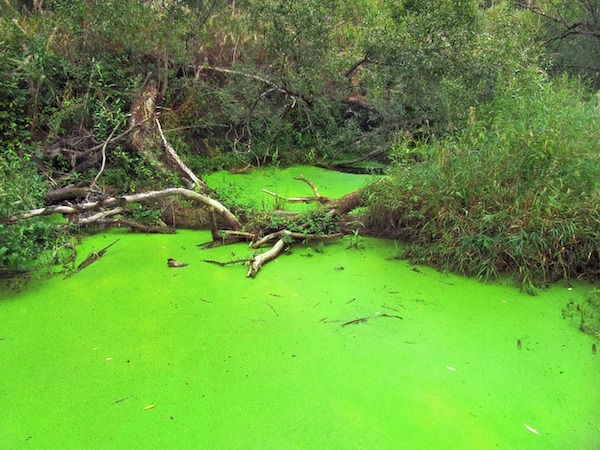
Good pool maintenance will usually prevent the formation of pool algae. Proper chlorine and pH levels will produce an environment which makes it all but impossible for pool algae to grow. General pool cleanliness is also important. Still, even a conscientious homeowner can occasionally run into an algae attack on his or her pool. If you now how to properly treat your pool, you should be able to remedy this problem in a timely fashion so you can get back to enjoying your pool.
Algae Dangers
Besides the simple fact that most people don’t want to swim in an algae-infested pool, algae can represent indirect but real dangers to your pool. Algae presents no immediate danger to swimmers. Limited pool visibility is an unnecessary risk to identifying items and debris in your pool and hinder rescue efforts for potential drowning victims. The presence of algae is also a clear sign of poor quality pool water that may also contain E. coli and other dangerous microorganisms. Needless to say, you’ll want to take care of your pool algae problem before you venture into your pool.
Algae Treatment
Ridding your pool of algae shouldn’t be too difficult, but it can be annoying and relatively expensive. You should clean your pool out as much as possible. Then, you’ll want to treat it with an algaecide. This sounds simple, but there’s some things you’ll need to watch out for. First, make sure your algaecide is sufficiently potent. Some products may be advertised as algaecides, but are really more of an algaestat, which merely inhibits algae growth. A weaker algaecide will probably still work and may or may not be cheaper, but it may also take longer to work.
Ready to start your pool algae?
Find ProsNext, shock your pool. Not just your weekly overdose, either, shock it hard. You may be tempted to do both at the same time. Be patient. The chlorine may interact with the algaecide and render it ineffective. You’re also going to need to balance your pool water. Chances are your pH levels and alkalinity are also off if you have algae in your pool. Throughout the entire process of algae removal, you should be checking your filter and backwashing as your pressure gauge warrants.
If you’ve been away from your home or have allowed the algae to run amok in your pool, your best bet may be to drain the pool, acid wash it, and refill.
Algae Prevention
While proper pool filters, cleaners, and water balance treatments should be enough to keep your pool algae free, you’ll also want to treat your pool water with an algaestat to keep the problem from recurring. Regular brushing of your pool can also prevent invisible dirt particles from latching onto your pool walls, giving algae the opportunity to start growing.
Some people believe in ground pools are inherently better for pool water quality. This is simply untrue. Many above ground pools, especially older ones, have cheap filter systems. Even quality filters may be the wrong type for your specific pool or may be mismatched for the pump and hose attachments. You may be applying good chemical treatments to your pool and conscientiously monitoring your pool water, but if the filter system isn’t operating as it should, you could be in for trouble. Pool companies are getting better all the time with their above ground pool systems. If you have periodic problems with algae, despite your efforts, it’s probably time to call a trustworthy pool professional for an inspection.
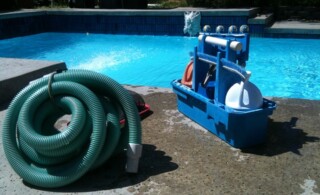 Pool Vacuums Provide Hands-Off Maintenance
Pool Vacuums Provide Hands-Off Maintenance 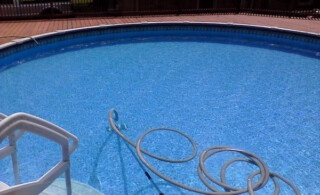 Let an Automatic Pool Cleaner Do the Work for You
Let an Automatic Pool Cleaner Do the Work for You  Air Duct Cleaning
Air Duct Cleaning 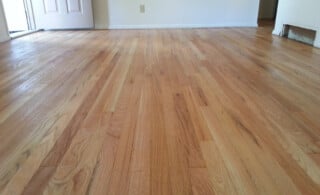 Cleaning Hardwood Floors
Cleaning Hardwood Floors 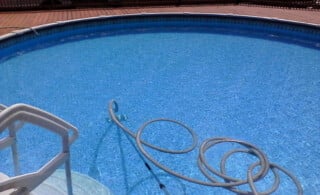 Why Everybody Should Have a Pool Cleaner
Why Everybody Should Have a Pool Cleaner 

Are You Familiar With This Topic? Share Your Experience.